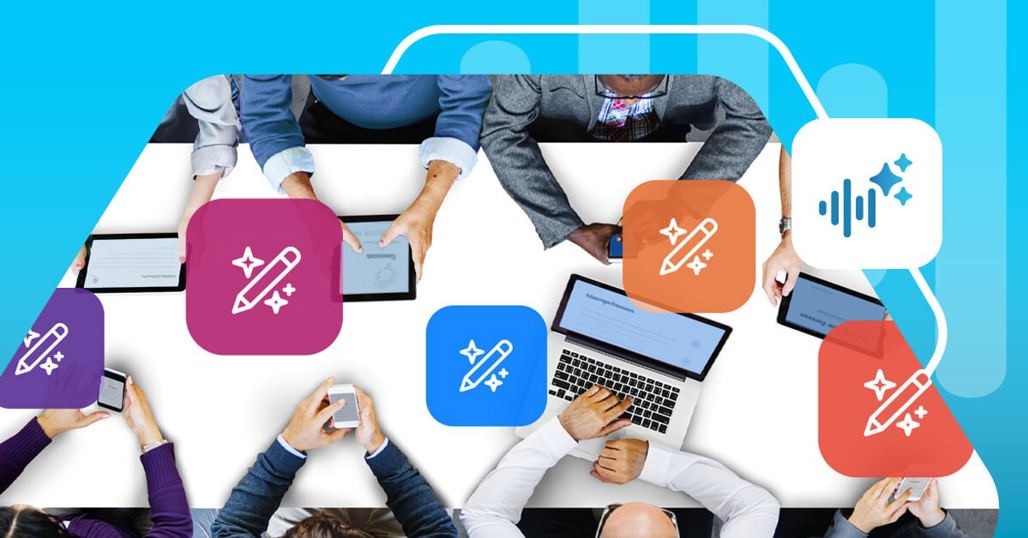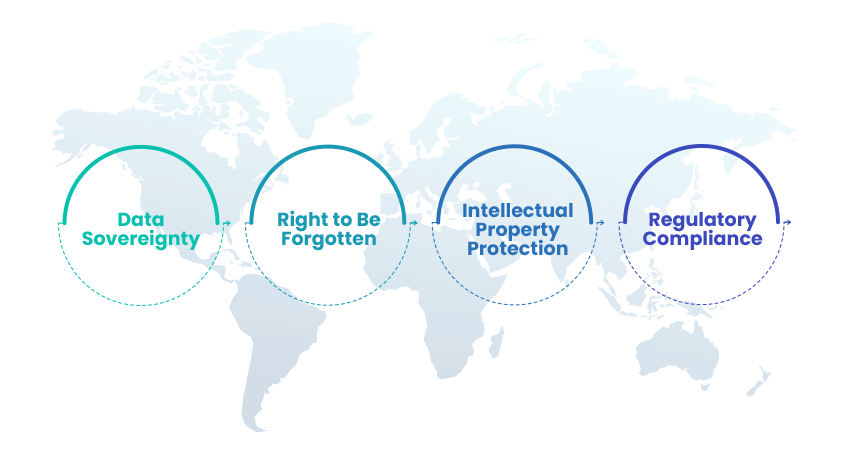Your team just finished discussing next quarter's strategy. Six people attended, and without anyone explicitly discussing it, three different AI services were capturing and processing every word. Does this scenario give you pause for thought? It should.
In today's hybrid workplace, personal AI note-taking tools have become silent participants in our meetings. They're efficient, helpful, and seemingly harmless. But beneath their productivity-enhancing exterior lies a significant security and compliance risk that many organizations are overlooking.

The Invisible Security Breach
Think about your last strategic meeting. Was it just your team members present, or were there invisible AI participants capturing the conversation? As employees increasingly adopt personal AI assistants to boost their productivity, each meeting potentially becomes a data exposure point for your organization.
Suddenly, your confidential discussion about future products, market strategy, or financial projections isn't just being shared with your team – it's being processed and stored by multiple third-party AI services, each with its own data handling practices and security protocols.
This isn't an extreme example. It's happening in organizations worldwide, creating what we call "shadow AI" – unauthorized AI services processing sensitive corporate data without proper oversight or security controls.
When Personal Productivity Creates Corporate Risk
The compliance implications can be significant:
- Data Sovereignty: Where is your meeting data actually being stored? Personal AI tools often use cloud servers across multiple jurisdictions, potentially violating data sovereignty requirements.
- Right to Be Forgotten: When an employee leaves, their personal AI accounts – containing months of meeting data – go with them. How do you handle a request to be forgotten and ensure complete data deletion as required by GDPR?
- Intellectual Property Protection: Your IP isn't just in documents and patents. It's in every strategic discussion, every product planning session, and every client meeting. Personal AI tools may be processing this information through their own AI models, potentially turning your proprietary information into training data.
- Regulatory Compliance: In regulated industries, the use of unauthorized AI tools could constitute a compliance violation. These breaches can occur when sensitive information is captured or transmitted by unsecured AI note-taking tools during meetings. Such unintentional disclosures not only compromise confidentiality but also expose organizations to severe legal and financial repercussions. It is crucial for these entities—across sectors such as healthcare, finance, law, education, and technology—to implement robust security measures and strictly control the use of AI in sensitive discussions to maintain compliance and protect privileged information.

The Hidden Cost of "Free" Note-Taking
These personal AI tools often come with an attractive price tag: free or nearly free. But the real cost isn't measured in subscription fees – it's measured in risk exposure:
- Sensitive data scattered across multiple personal accounts
- No centralized control over data access and retention
- Limited ability to track or audit data usage
- Consumer-grade rather than enterprise-grade security features
- Potential compliance complications
Free Trial
Want to see AudioCodes Meeting Insights in action?
Book a call to unlock your 30-day trial!
The Enterprise Solution: Securing Your Meeting Intelligence
Organizations need an enterprise-grade solution and a systematic approach to meeting intelligence that prioritizes security and compliance while delivering the productivity benefits employees seek:
- Centralized Control: All meeting data remains within your organization's security perimeter
- Compliance by Design: Built-in controls for data sovereignty, retention, and privacy requirements
- Enterprise-Grade Security: End-to-end encryption and role-based access control
- Audit Trail: Complete visibility into who accesses meeting content and when
- Data Governance: Maintain control over your intellectual property and sensitive information
Conclusion
Organizations should focus on addressing the challenges and risks associated with the growing presence of personal AI note-takers in business meetings. This new practice represents a significant blind spot in organizational security. While these tools offer compelling productivity benefits, the risks they pose to security, compliance, and intellectual property protection need to be carefully managed. Organizations need to implement secure, enterprise-grade alternatives that provide the productivity benefits employees need while maintaining the security standards the business requires. It's time to take control of your meeting data before your invisible meeting participants create very visible problems.
Ready to secure your meeting intelligence? Learn more about how Meeting Insights can help protect your organization while boosting productivity.






